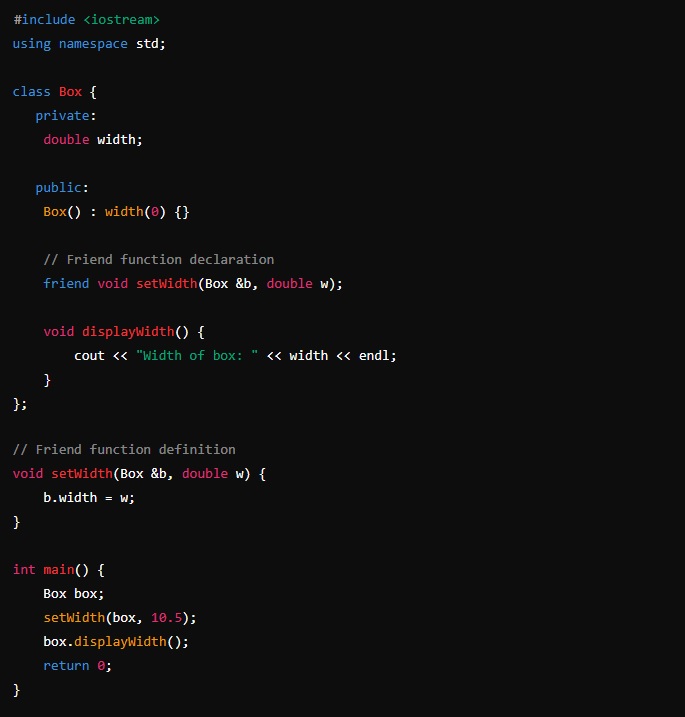
Introduction
In C++, a friend function is a function that is given special access to the private and protected members of a class. Unlike member functions, friend functions are not part of the class's scope, yet they can access the class’s private data. This unique feature of C++ allows for more flexible and efficient code, especially when dealing with complex class interactions.
What is a Friend Function?
A friend function is declared using the keyword friend within the class that grants it access. Although the friend function is declared inside the class, it is defined outside the class and does not have a this pointer, meaning it cannot be called using the class object’s dot operator.
Why Use Friend Functions?
Friend functions are particularly useful in scenarios where an external function needs to work closely with multiple classes. By granting a function friend status, you can maintain encapsulation while still allowing the necessary interactions between the function and the class's private members.
Example of a Friend Function

Explanation:
In this example, setWidth is a friend function of the Box class. Although it's defined outside the class, it has direct access to the private member width. This allows setWidth to modify width directly, even though width is a private member of the class.

Advantages of Using Friend Functions
Increased Flexibility: Friend functions allow for more flexible access control within a program, enabling specific external functions to manipulate private class data.
Enhanced Efficiency: Friend functions can help reduce the need for multiple getter and setter methods, simplifying code and improving performance.
Cross-Class Interaction: Friend functions are useful when you need a function to interact closely with multiple classes, granting it access to each class's private members without making them public.
Disadvantages of Using Friend Functions
Potential Breach of Encapsulation: Overusing friend functions can lead to a design where encapsulation is compromised, as external functions gain access to a class’s private members.
Maintenance Complexity: Friend functions can increase the complexity of code maintenance, as changes to the class’s private data may require corresponding updates to the friend function.
Conclusion
Friend functions in C++ provide a powerful tool for managing access control and interaction between classes and external functions. When used appropriately, they can enhance both the flexibility and efficiency of your code. However, it’s important to balance their use to avoid compromising the principles of encapsulation.
Understanding and implementing friend functions can be a valuable skill in your C++ programming toolkit, especially as you tackle more complex projects in 2024 and beyond.
Comments (0)